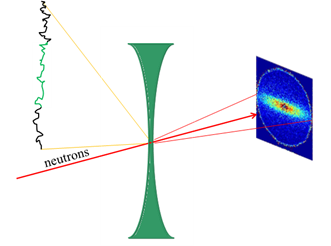The research is focused on utilizing self-organization principles to achieve goals within nanotechnology. The basic competence in the group is the ability to identify and synthesize (polymer) molecules that can solve a specific task.
The group seeks suitable tasks through cross-disciplinary collaborations. Self-organization has been perfected by nature to form the building blocks of living organisms.
The present abilities of artificial self-organizing systems are bleak compared to nature and thus there is room for much development. Self-organization is based on a clever combination of incompatibility and connections. In other words, the systems have built in both driving forces to separate and structures to prevent separation. If these two tendencies - separation and connection - are balanced correctly, interesting structures ensue.
By definition, self-organization is a cooperative process; many molecules must find their position in some structure without actively being placed in the position. Apparently the desired structures are most likely obtained when the driving force for the single molecule are not too strong.
In an analogy with landscapes, it is easier to find your way to the lowest point in a soft rolling hill landscape that in a ragged mountain chain. You are less likely to get stuck in the wrong valley where steep sides could make it hard to get back out.
In physical systems, it is the free energy landscape that governs the behavior. Soft contour free energy maps are generally found close to phase transitions and self-organized systems in nature are often close to phase transitions, that is, close to condition where they are no longer stable. A consequence of the need to balance the different driving force carefully is that one cannot expect to build a large variety of things with the same building blocks. The building block need to be fine-tuned to the task at hand.

The Figure illustrates a small-angle neutron scattering experiment on a stretched polystyrene polymer melt. Results published in Rheologica Acta, 51 (2012)
Research Highlights:
Block copolymer Self organization:
Macromolecules, 25 (1992); Macromolecules, 28 (1995); PRL, 65 (1990); J Polymer Science 56 (2018)
Extensional Flow in polymer melts:
Macromolecules, 36 (2003); PRL, 120 (2018)
Polymer Degradation:
Polym. Degradation and Stability 83 (2004)
Structured surfaces:
Nano Research 7 (2014); ACS Applied Materials & Interfaces, 8 (2016)